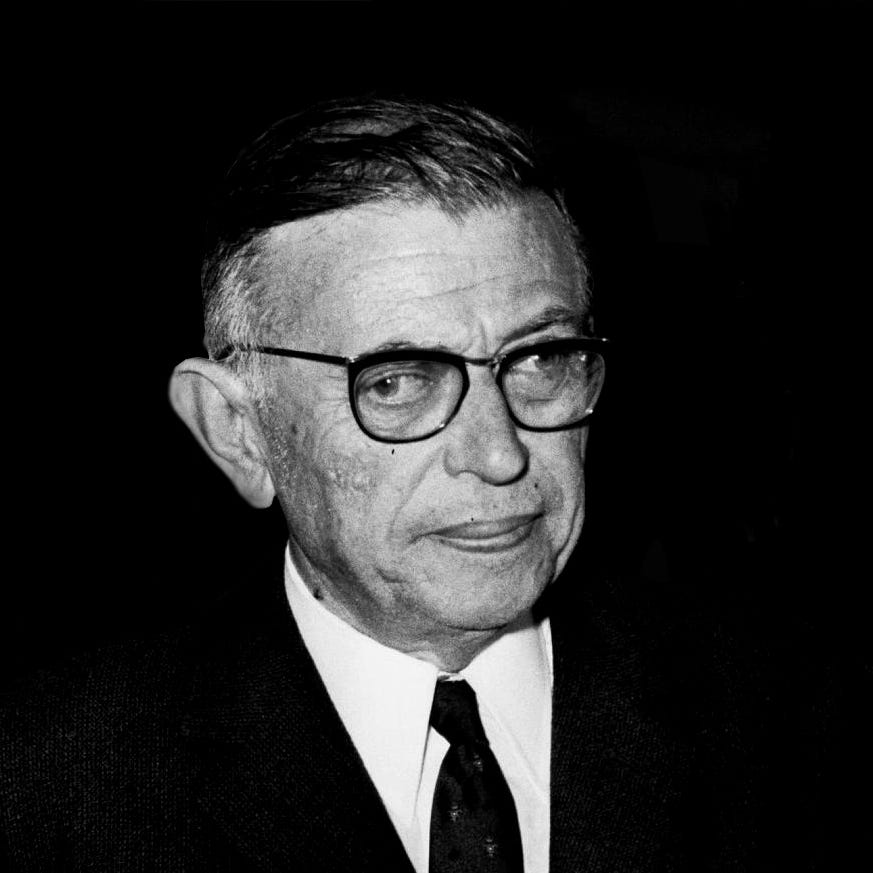November Issue of The Worldview Bulletin-Pt. 1
Existentialism | The Church as Culture-Shaping Institution | Till We Have Faces and Epistemology
Greetings! We hope all of our readers in the US had a good Thanksgiving. You’ll find much to ponder and benefit from in this issue. Paul Copan continues his worldview series, this time weighing the insights and weaknesses of existentialism. Paul Gould explains why we should view the church as a culture-shaping institution, while David Baggett continues his series on the epistemological and moral issues raised in C. S. Lewis’s novel Till We Have Faces. In addition, Melissa Cain Travis makes her debut as a member of our team with her interview of William Lane Craig on his book In Quest of the Historical Adam. Finally, we round up the latest news and book deals.
With Thanksgiving,
Christopher Reese
Editor-in-Chief
Contents
Part One
Questioning Worldviews: Part 2
Existentialism
by Paul Copan
The Church as a Culture-Shaping Institution
by Paul M. Gould
Making Epistemology Ethically Robust: Reflections on Till We Have Faces, Part 2
by David Baggett
Please see the second email for Part Two of the newsletter.
Questioning Worldviews: Part 2
Existentialism
by Paul Copan
“If You Want To Sing Out, Sing Out”
If you’ve seen the off-beat, dark comedy Harold and Maude (1971), you heard the singer Cat Stevens’ very “existentialist” song, “If You Want To Sing Out, Sing Out”:
Well, if you want to sing out, sing out,
And if you want to be free, be free,
‘Cause there’s a million things to be;
You know that there are.
And if you want to live high, live high,
And if you want to live low, live low,
‘Cause there’s a million ways to go;
You know that there are.
You can do what you want;
The opportunity’s on,
And if you can find a new way,
You can do it today.
You can make it all true
And you can make it undo….
Well if you want to say yes, say yes,
And if you want to say no, say no,
'Cause there’s a million ways to go;
You know that there are….
So what is existentialism? It’s hardly as popular a term as it was in the 1960s and 1970s. However, its vestiges and adaptations are still with us: “self-authentication,” “finding myself,” “needing to be me.”
Some people have called the nineteenth-century Christian philosopher Søren Kierkegaard “the father of existentialism.” This label can be misleading because most people associate existentialism with the atheism of Jean-Paul Sartre (1905-1980), Albert Camus (1913-1960), or Martin Heidegger (1889-1976). The problem is that their worldview was far removed from Kierkegaard’s Christocentric one, and the features that made Kierkegaard’s “existentialism” so rich, meaningful, and fruitful are connected to God’s existence, the divine image, the gospel’s power over moralism and legalism, and so on. For Sartre, however, God played no part in his system of explanation. He did lament the fact that God’s non-existence meant that objective moral values did not exist either.
Sartre began with human consciousness, which is neither part of the world or the result of some causal sequence of events. Humans are radically free, and they can either repress freedom (e.g., we could believe that our beliefs and actions are determined) or recognize this freedom (i.e., we take responsibility for our actions).
For our purposes, we’ll focus on the atheistic account, although we can see some touch-points for the gospel therein.
Three Key Features
Existence Precedes Essence
The central tenet of existentialism is that existence precedes essence. Sartre declared, “Existence precedes and rules essence.” It sounds fancy, but what does it mean? In brief, we can put essence and existence this way:
Essence = what it is
Existence = that it is
The essence or nature of something makes a thing what it is. There are certain characteristics that a thing has—an oak tree, a frog, a human being—and if these essential features were to be missing, we wouldn’t have (respectively) an oak, a frog, or a human being. What Sartre was rejecting is the common Greek philosophical conception that human nature is defined prior to the existence of any individual human being: essence precedes existence. And when an individual human comes into existence, this is because the human essence has been “actualized” and “individuated.”
However, for the existentialist, there is no given or pre-set human nature or essence to define us. We are not “locked in” to a predetermined identity. What is important is what we make of ourselves and the fact that we choose. Radical freedom is the heart of existentialism. We are, according to Sartre, “condemned to be free.” Our freedom brings with it a dread or anxiety. And we do see this kind of a burden in our modern, technological society. We find we have so many choices available: music to listen to, movies to watch, foods to eat, places to vacation, and what to do with our free time. Yet burdens come with this—a despair that we can’t do all that we would like, the disappointment that our choices don’t lead to the deep fulfillment for which we had longed.
For the existentialist, a burden rests upon me, who am “no thing,” to become something. Existence is the occasion for self-making. And what we choose is less significant than that we choose. Sartre writes that “it is nowhere written that ‘the good’ exists, that one must be honest or must not lie, since we are now upon the plane where there are only men.”[1] The crucial question is not so much what it means to be, but what it means for me to be or exist.
Keep reading with a 7-day free trial
Subscribe to The Worldview Bulletin Newsletter to keep reading this post and get 7 days of free access to the full post archives.

